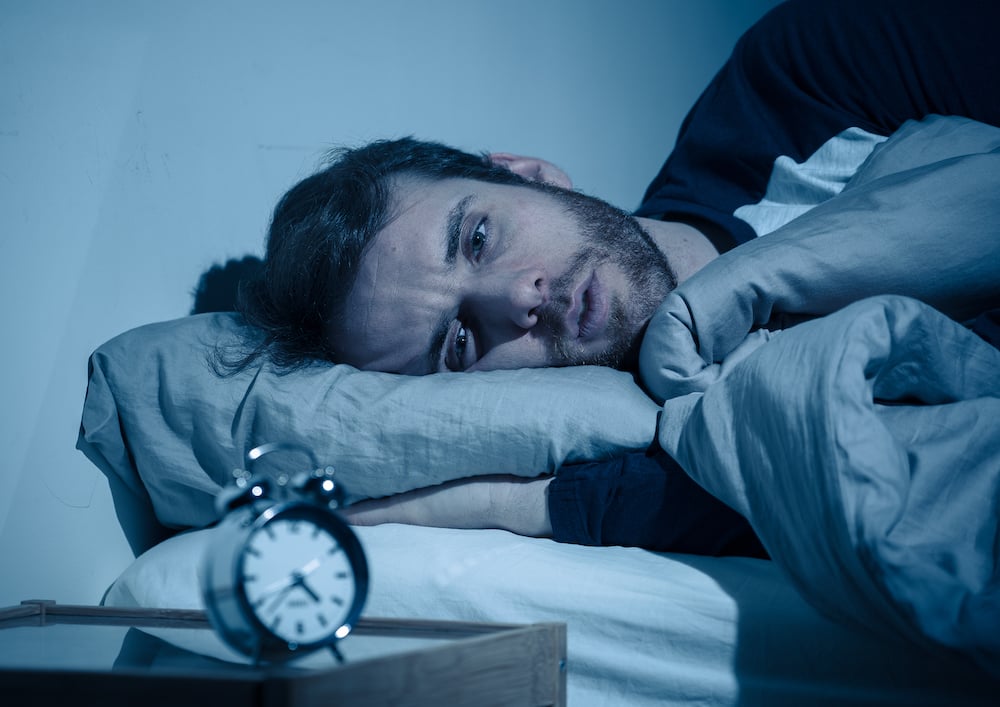Caffeine is something a lot of us can't function without it, especially in the mornings. Unfortunately, you've probably heard that coffee can affect your sleep patterns, as can anything else with a lot of caffeine.
Related Blog: Night Owl vs. DSPS vs. Insomnia: What's the Difference? Signs and Symptoms
Caffeine is a stimulant and as such tends to make us feel more alert and awake and (falsely) better rested. It's physically addictive to some people (withdrawal symptoms can include headache, fatigue, and muscle pain).
Does Caffeine Disrupt Your Sleep?
The simple answer is yes. That is, after all, why you have that cup of coffee in the morning; it helps you shake off sleep inertia (the lingering effects of sleep) and get the day off to a good start. So, it's only logical that caffeine can cause insomnia. So, how does caffeine cause sleep problems?
- The sense of being "wired" from too much caffeine consumption can make sleep initiation hard. It can also make it hard for you to want to go to sleep.
- Caffeine consumption reduces a metabolite of melatonin which you need to sleep properly, which is why too much caffeine can cause you to have a restless night.
- Studies show that late-night caffeine consumption shifts rapid eye movement (dreaming) to the early part of the night and deep sleep to the latter, which could cause deprivation of deep sleep when you are awakened by an alarm clock.
- Caffeine can delay your body clock, causing you to want to stay awake later and sleep later. In our modern life, this may be combined with the sleep-delaying impact of blue light at night to make things worse.
This then causes the "coffee cycle." Disrupted sleep makes you tired in the morning and makes you use more caffeine to mitigate morning drowsiness. Combined with the fact that most of us are not getting enough sleep...
How Can You Keep Caffeine From Disrupting Your Sleep?
Other than cutting yourself off from caffeine (and bear in mind, caffeine is in chocolate and many cold remedies), there are things you can do to keep caffeine from interrupting your sleep:
- Reduce the amount of caffeine you consume. If you are chain drinking tea or using energy drinks you may simply be using too much caffeine. Avoid those energy drinks and very high caffeine sodas, and consider alternating with decaf. Avoid pure caffeine powder, which is marketed as a dietary supplement. People have actually lethally overdosed on it.
- Avoid drinking caffeine in the evening. Caffeine takes a long time to metabolize. You should not drink caffeinated beverages within six hours of bedtime. The best time to enjoy your coffee is, indeed, in the morning. Drinking caffeine late at night will delay sleep onset. If you're fond of chocolate-covered coffee beans, enjoy them in moderation with breakfast or lunch. Oh, this does include that rum and coke.
- Avoid heavily caffeinated alcoholic beverages, such as cocktails that contain Red Bull.
People with Delayed Sleep Phase Disorder should be particularly careful about caffeine consumption, as it can aggravate their symptoms. Some may benefit from quitting caffeine altogether or limiting their consumption to, say, the occasional bit of chocolate.

Can Caffeine Benefit Your Sleep Cycle?
So, caffeine messes up your sleep cycle, but are there any benefits? There are known benefits of caffeine in general, which include boosting sports performance, improving mental alertness and memory, and possibly even slowing mental decline with age. There's some research indicating that caffeine can reduce your risk of Alzheimer's, Parkinson's, and cataracts.
There are two situations in which caffeine's effect on the sleep cycle may be beneficial:
- If you have advanced sleep phase disorder, well-timed caffeine can help delay your sleep cycle and help you stay up to socialize or work in the evening.
- Caffeine can help with jet lag if you are traveling west. Drinking a double espresso or the equivalent three hours before your normal bedtime, especially combined with bright light, can help your sleep cycle start to reset to the new time zone. However, studies also indicate that you may want to skip the caffeine altogether if traveling east.
More research is being done on whether caffeine can help treat certain sleep disorders.
So, yes. If you are wide awake at 2 am you may want to blame your coffee habit, but if you stop drinking coffee earlier in the day your sleep cycle should get back to normal quickly.
At Land Of Sleep, we strive to provide our customers with comfortable, quality bedding needs to ensure they get the rest they need to get through their day. Download our Guide to Better Sleep today to learn more about how the right mattress can help you with all of your sleep needs.





